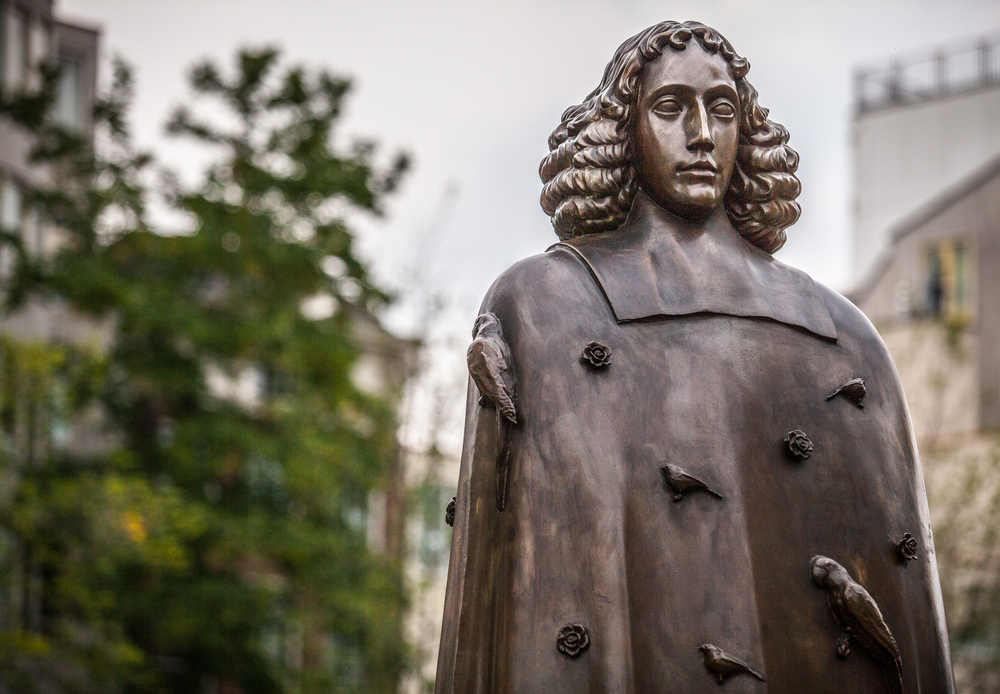History can be used and abused for many things, which is why it’s useful to understand it. That’s why we tell these stories about Dutch history that we consider to be true.
However, the truth is not always handed to us, and sometimes, history can be intentionally misrepresented for heinous reasons. 👀
Ever since the 2016 OnsOnderwijs2032 report came out, which discussed the future of Dutch education, it’s been clear that accurate portrayals of Dutch history have taken a backseat.
The report suggested that there won’t be a separate history class in Dutch schools anymore, and that the lessons of history should be implemented in other classes. Is that good? Probably not. But can we do anything about it? Probably not.
That’s why we’ve taken it into our own hands to take a critical look at three principles or myths that may have influenced Dutch society’s view on history. 👇
The Polder Model
The Polder Model is a term that was invented in the 1990s. It describes a process of decision-making based on consensus and dialogue, with every party having an equal say. It is defined by the lifelong struggle of the Dutch with the element of water in a land that lies partly below sea level.

The enthusiasm for the polder model was actually initiated abroad. In 1994, there were several articles written in the USA in which the Dutch combination of unemployment care and job creation was admired by the Americans.
It was only in the second half of the 90s that the term was also embraced by the Dutch and not only included the successes of our consensus economy, but also the way we took care of our problems with drugs, the environment, and sex education.
Although the term suggests that there was a polder model in our early modern country, because we had to keep our feet dry, the reality was a whole different story. In most of the polders and water boards, there was actually no harmony, no consensus, nor meetings on an equal footing.
READ MORE | The Dutch built cities on sinking land: how will this fare with climate change?
The only way they worked together was that the polders came into being due to the contribution of joint capital and united cooperation. However, the decisions were mainly one-sided by members of the board with an aristocratic background.
The early modern world was a class society in which people from the higher classes had little interest in what the farmers wanted or in giving them any kind of vote in this.
The notables made all the decisions, they dominated the water boards, their word was law, and there were barely any exceptions to this rule.
Dutch tolerance
Tolerance is something that the Dutch talk about all the time.
Politicians often see it as one of the moral highlights of Dutch society. They try to sell this moral concept abroad and tell us that Dutch tolerance is under pressure because of the refugees that ‘flood’ our country.
After all, we are the land of Spinoza and other free-thinking intellectuals that were persecuted elsewhere. We are the land where soft drugs can freely be used and where the sexual preference of someone is a non-issue.
READ MORE | 14 forward-thinking things Dutch people do
On the other hand, we were also one of the last European countries where the abolition of slavery took place.
Dutch tolerance is mainly traced back to the Dutch Golden Age, the 17th century when the Netherlands was still a Republic.
The main supporters of religious tolerance were actually the conservatives. They were caught between Catholic king Philips II and his supporters and the radical Calvinists. These two groups fought for the implementation of their own radical reform program.
READ MORE | Calvinism in the Netherlands: why are the Dutch so Calvinist in nature?
In between, there were moderate protestant rulers who eventually drew the longer straw. But that didn’t mean that they implemented a religious program that we, in the 21st century, would have considered tolerant.
There were several restrictions to the freedom of religion, there was discrimination, and mixed marriages were rare.
Spinoza confessed that he was afraid to publish several of his articles, because of possible repercussions. Overall, however, there was relative peace in which our economic, cultural, and colonial expansion would prosper as never before.

Tolerance, by the way, isn’t even a positive term when it means that you “allow someone to be different, even though you’re actually against it.” That can be pretty passive-aggressive, so why do we even want it to be a cornerstone of the Dutch identity? Get rid of it. Erase it from our collective memory.
The Netherlands got rich off colonial trade
The image of our trading spirit has its roots in the Golden Age of Dutch history, the 17th century.
The East India Company (VOC) and West India Company (WIC) were world-famous for dominating the world market in certain Asian spices and the temporary monopoly on the slave trade in the West Indies, the so-called asiento.
READ MORE | The Dutch East India Company was richer than Apple, Google, and Facebook combined
In addition, it was the Calvinist spirit that made us even richer than we already were.
Because the ethos of Calvinism was that you shouldn’t be too showy with your luxuries, doe maar normaal dan doe je al gek genoeg (act normal, then you act crazy enough), they invested their profits back into companies such as the VOC and the WIC, which made them even richer.
Although the history of the VOC and the WIC contributed heavily to the image of our trading spirit, we weren’t actually getting really rich from this international trade. Most of the wealth we generated was mainly earned through inter-European trade, rather than with the extra-European.
READ MORE | The life of the slaves in the Dutch colonies
However, the VOC and WIC were pioneers in the way the enterprises were financed, via public enrolment by stakeholders.
Therefore you could call them the first joint-stock companies (N.V. in Dutch) the world ever had, although they had privileges, such as the monopoly on warfare in the Indies, that few N.V.’s in the Netherlands have nowadays.
With a little bit of historical knowledge, it’s easy to see that most of the supposed principles that make up Dutch identity are less true than most politicians make it out to be.
The only way to avoid future abuses of misrepresented historical knowledge is to keep accurate and reflective history as a vital part of the Dutch education system.
What do you think about these myths about Dutch history? Do you think they’re true? Tell us your thoughts in the comments below!




Dear Jordy,
Thank you for your most illuminating article on the history of Calvinism in the Netherlands!
On a very related front regarding Calvinism, I just sent the following letter to about 50 churches in the Netherlands, as I am researching and surveying views in modern times re John Calvin and Calvinism in the Netherlands for a chapter in my upcoming book and documentary on Calvin.
If you care to answer any of the questions in the letter, that would be great too!
James
Subject: Calvinism, Baptism Musical Instruments in Worship questions in Churches in The Netherlands
Date: April 30, 2020 at 3:30:00 PM EDT
Dear Christian Churches in the Netherlands,
I just this week discovered your churches. I just have 4 questions for you, where you are Dutch Reformed, Baptist, Catholic, or any other denomination:
1. Why would any kind of Baptist not totally reject John Calvin and have no association with even his name who burned people at the stake for opposing infant baptism?
2. As you know, The Netherlands is where Reformed Theology TULIP originated then spread throughout Europe, Africa, and America. But of the billions of tulips sold from there every year, wasn’t there at least one wise among them to inform them to inform them that a tulip has only 3 petals and to this day no one has exposed this?
3. Conrad Mbewe a black leading pastor in Zambia is championing Calvinism taking over Africa. But Calvinism is responsible for white supremacy Dutch Reformed Church in Africa and corrupting Curse of Ham racism plague that also infected America my country. Can you explain this?
4. Calvin banned and condemned the use of musical instruments in worship, calling it an abomination. So why do so many Reformed, and all other Baptist Denominations and so many other denominations, use musical instruments in worship in defiance of John Calvin?
I look forward to your responses!!
Thank you!
Sincerely in Christ,
James Sundquist
Eaglemasterworksproductions.com
as a Dutch born now US citizen , with a Dutch Reformed background, religion has always mystified me. I’ll keep on assimilating. John Kole. Looking forward to more missals. JK.